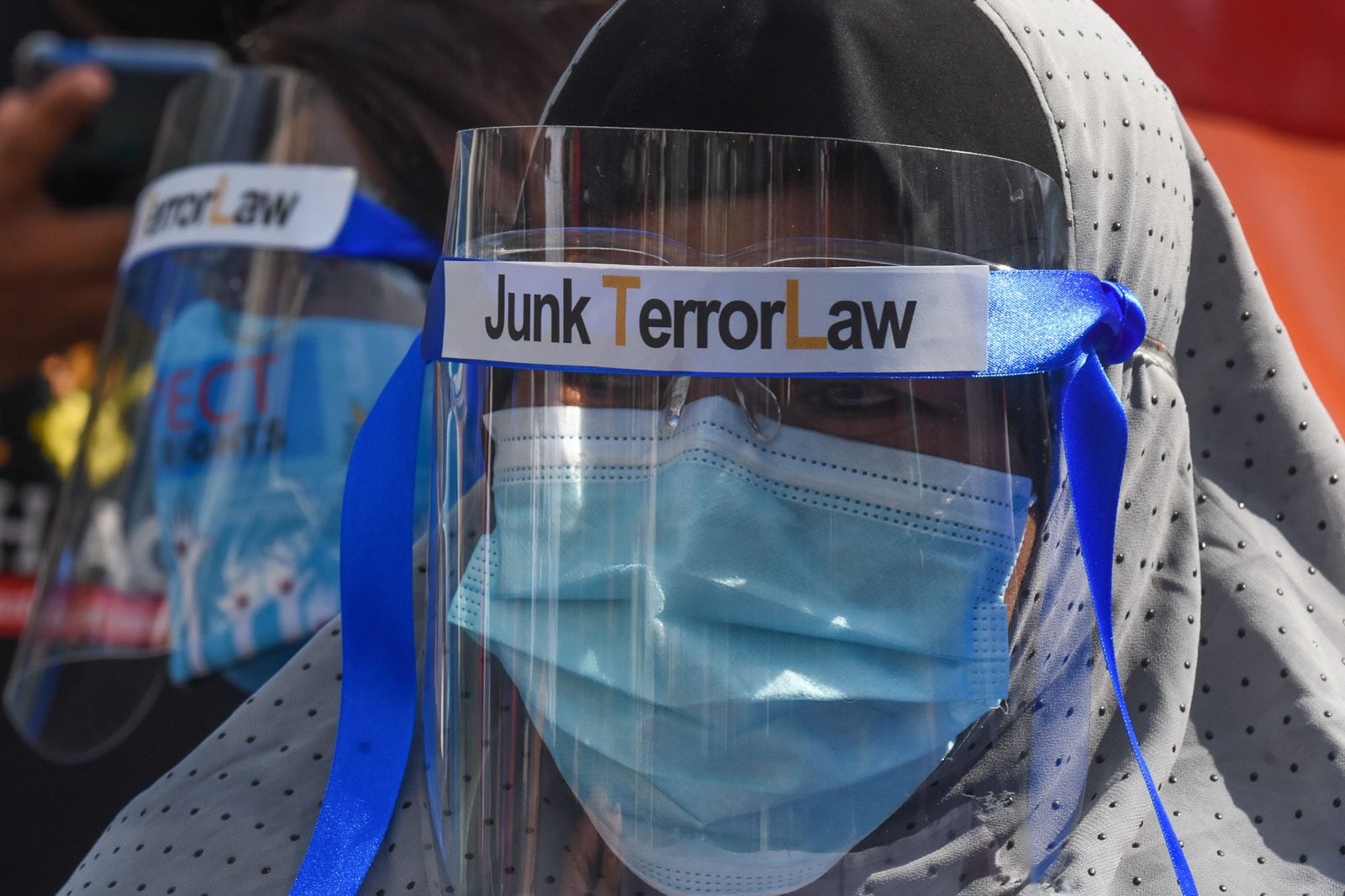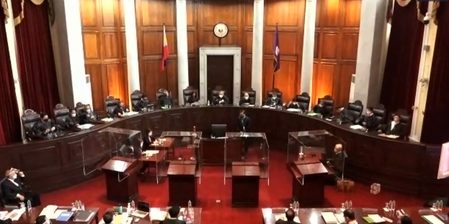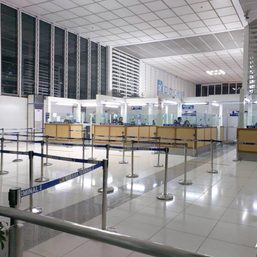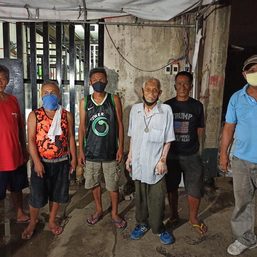SUMMARY
This is AI generated summarization, which may have errors. For context, always refer to the full article.

Citing the number of petitions against the anti-terror law – 37 in all – Chief Justice Alexander Gesmundo said the Supreme Court would “try its best” to rule on the case within the year.
“By the sheer number of petitions it might take some time before the Court can at least prepare its draft, but hopefully within the year perhaps we can have a decision on [those] 37 petitions before the year ends,” said Chief Justice Alexander Gesmundo in a chance interview with reporters on Thursday, July 8.
The 37 petitioners, clustered into six groups for the purpose of final position papers, have all submitted their memoranda to the High Court on June 25. The Office of the Solicitor General (OSG) has also submitted its 800-page memorandum in defense of the law, which means the countdown has started in the Supreme Court.
“We’ll do our best to have [those] petitions decided before Justice Carandang retires,” said Gesmundo.
He was referring to Associate Justice Rosmari Carandang, the member-in-charge of the case, who will retire on January 9, 2022.
Under Section 15, Article VIII of the Constitution, all cases must be decided by the Supreme Court within 24 months, yet this rarely happens.
Justices believe this provision is merely directory and not mandatory.
‘Before tragic consequences befall’
“[The anti-terror law] is a loaded weapon ready for the hand eager to use it,” said the memorandum submitted by Cluster 2, which includes the petition of retired justices Antonio Carpio and Conchita Carpio Morales.
“Petitioners invoke the judicial power because the Anti-Terror Act hangs ominously over their heads like the Sword of Damocles and prevents them from exercising their constitutional rights. They pray that they be heard before tragic consequences befall them,” said the cluster’s memorandum.
In its memorandum, the OSG told the Supreme Court that the unilateral decision of the Anti-Terror Council to designate someone or a group as terrorists will stand, even if the Court of Appeals eventually refuses to issue the judicial order of proscription.
The government can always refile the proscription after six months, said the OSG, adding that the damage to their reputation is blamed on no one but themselves.
It rendered all judicial remedies useless, said the petitioners.
“The Anti-Terror Act has abandoned the real and effective safeguards for the protection of constitutional rights and civil liberties provided for under the erstwhile Human Security Act, and these genuine safeguards were substituted with mere motherhood statements,” said the memorandum of Cluster 5, which includes the petition of opposition lawmaker Edcel Lagman.
– Rappler.com
Add a comment
How does this make you feel?

![[PODCAST] Law of Duterte Land: Captain Ri and all the president’s men](https://www.rappler.com/tachyon/2021/05/Law-of-DuterteLand-sq.jpg?fit=449%2C449)








There are no comments yet. Add your comment to start the conversation.